6-Way 2-Bay NAS Round Up
We test the hottest new 2-Bay NAS to compare features and performance. These entry-level products allow you to access your data from around the world and secure your data with redundant disks.
Synology DS216j & DS216+
Why you can trust Tom's Hardware
Synology DS216j
We have two systems from Synology in our review. The DS216j follows the same path as the Asustor and QNAP systems we've already discussed, which means that Synology designed it for entry-level users who want redundant storage at a low price point. At $169.99, the DS216j has the lowest price of the products we're testing, but the processing power and system memory also trail many of the other products.
Synology is one of the most well-known NAS manufacturers and has a loyal following that it earned through years of successful releases, quality support and simplified interfaces. Synology, like Asustor, QNAP, and Thecus, uses the same software interface throughout its entire product line. If you master the setup and management of one Synology system, then you already understand how the software functions on its other NAS. Like the other companies, Synology aggressively brings new features to market, but it falls behind QNAP in the breadth of its library of applications.
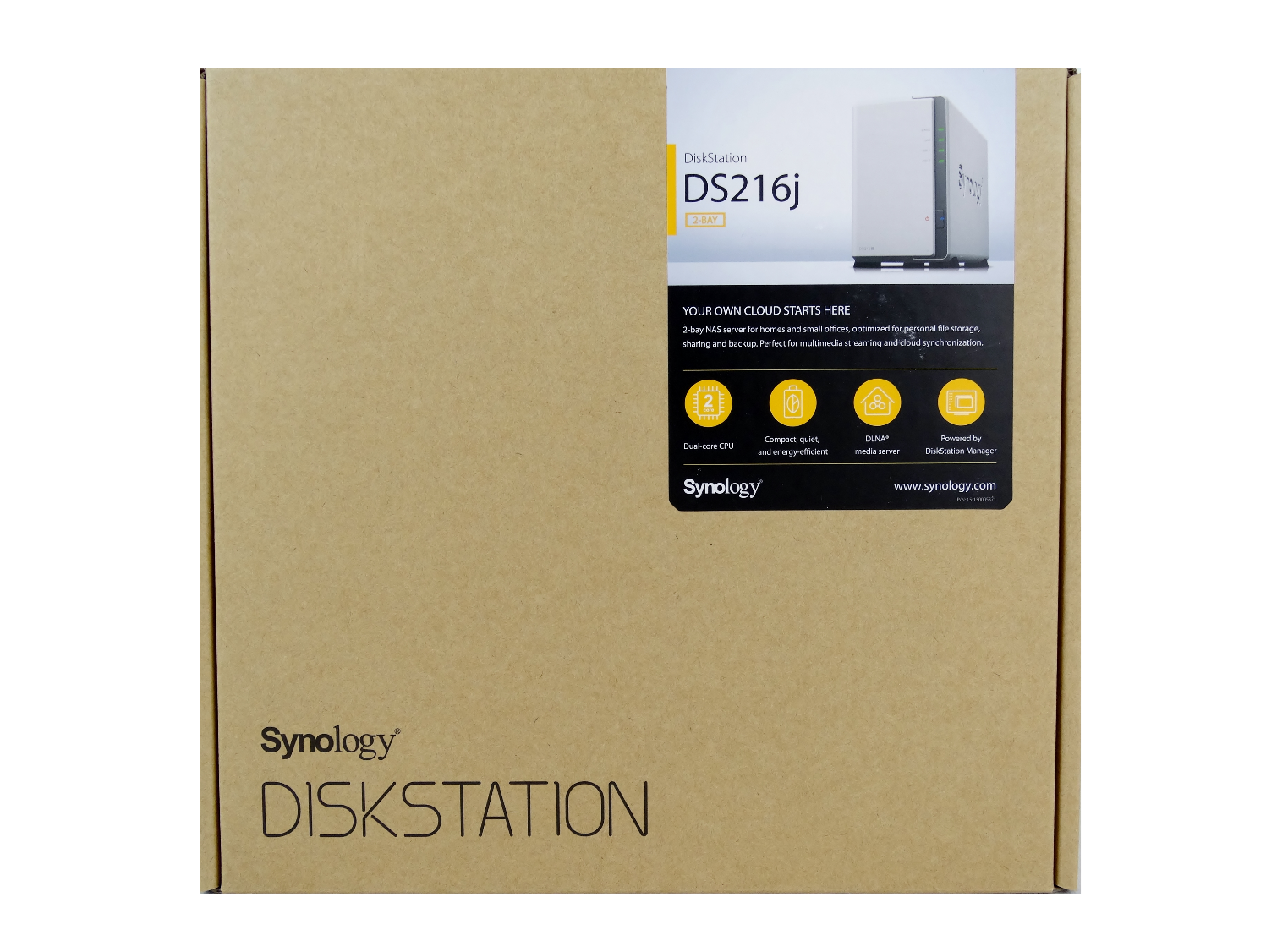
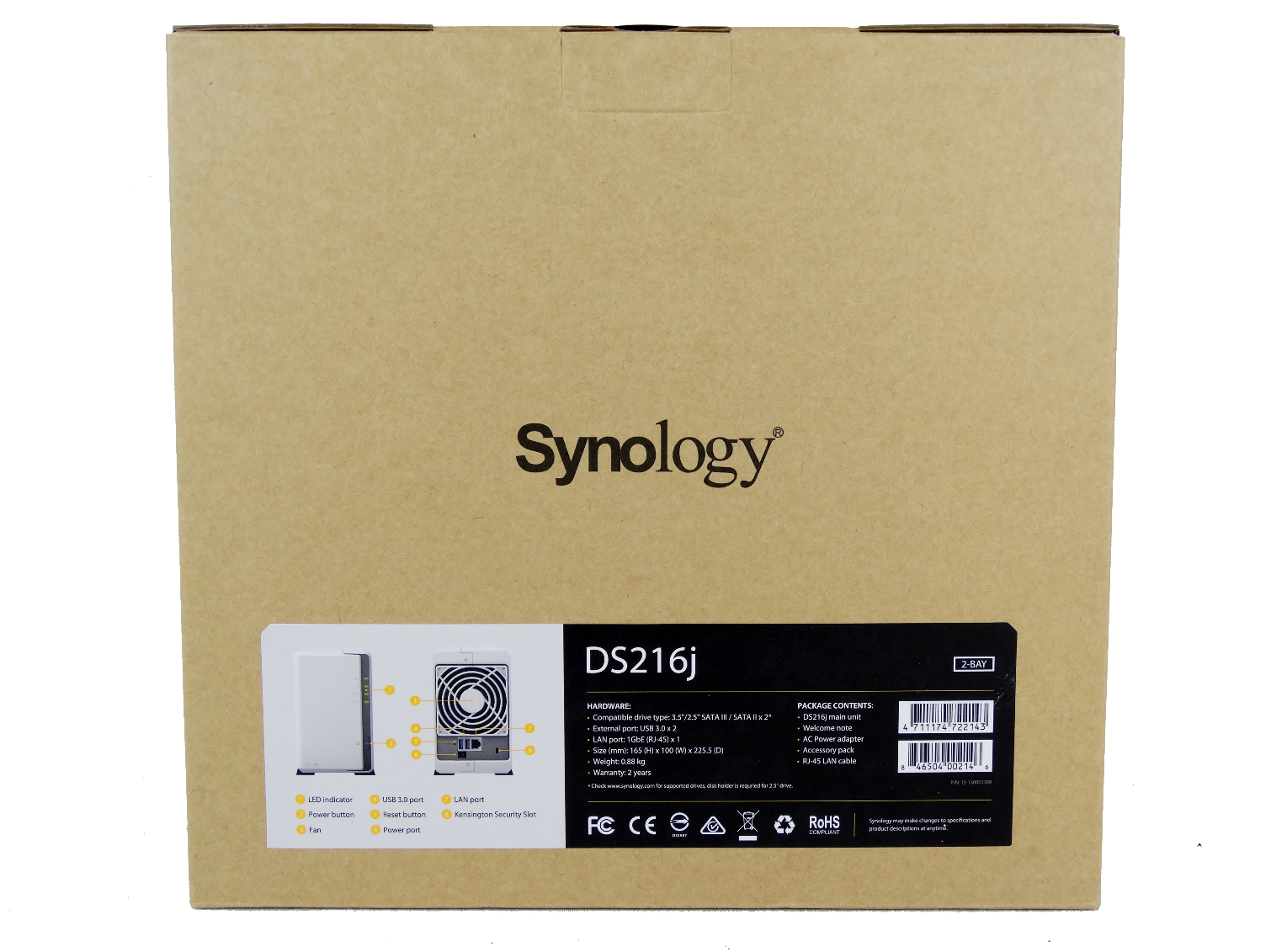
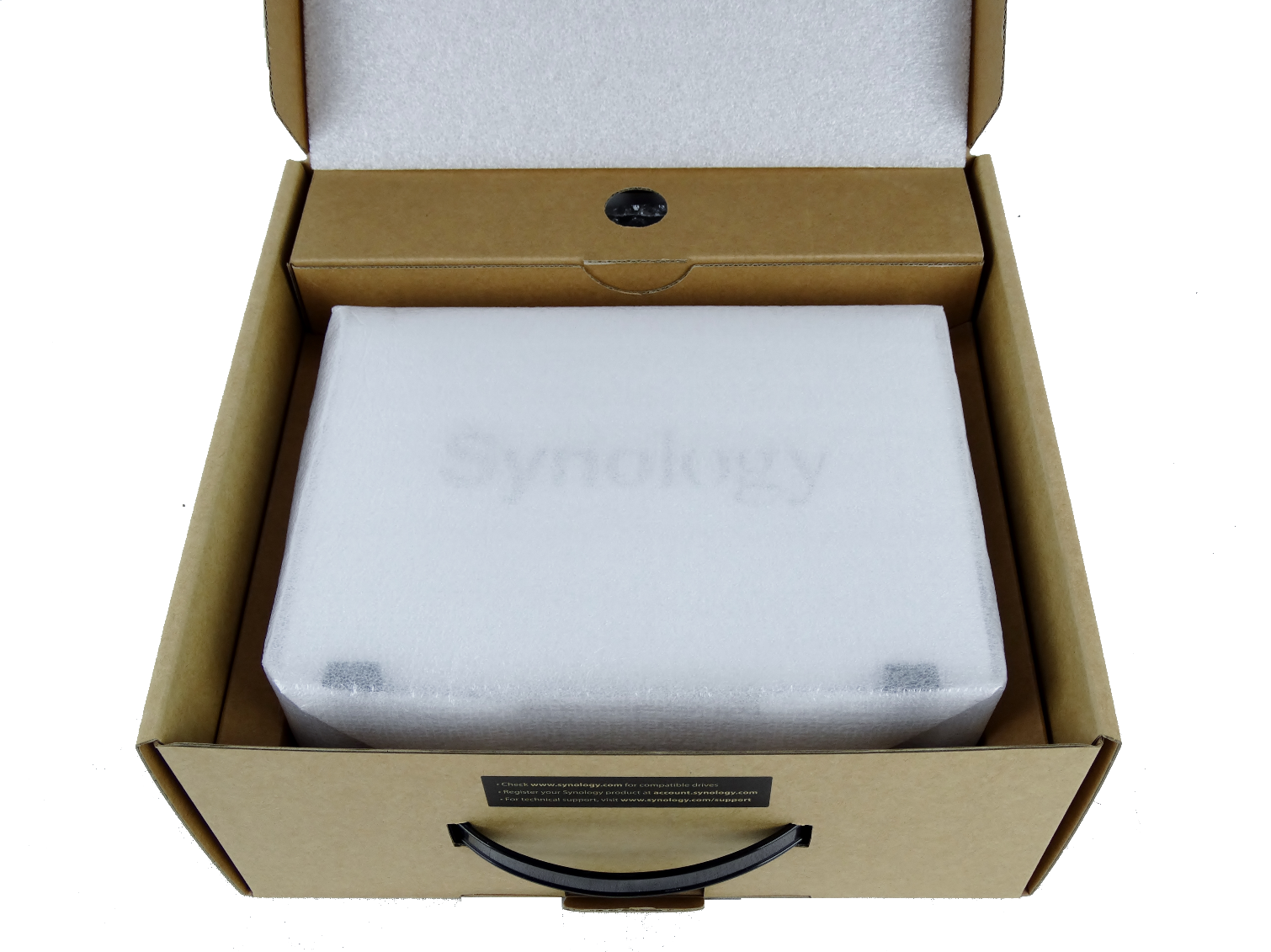
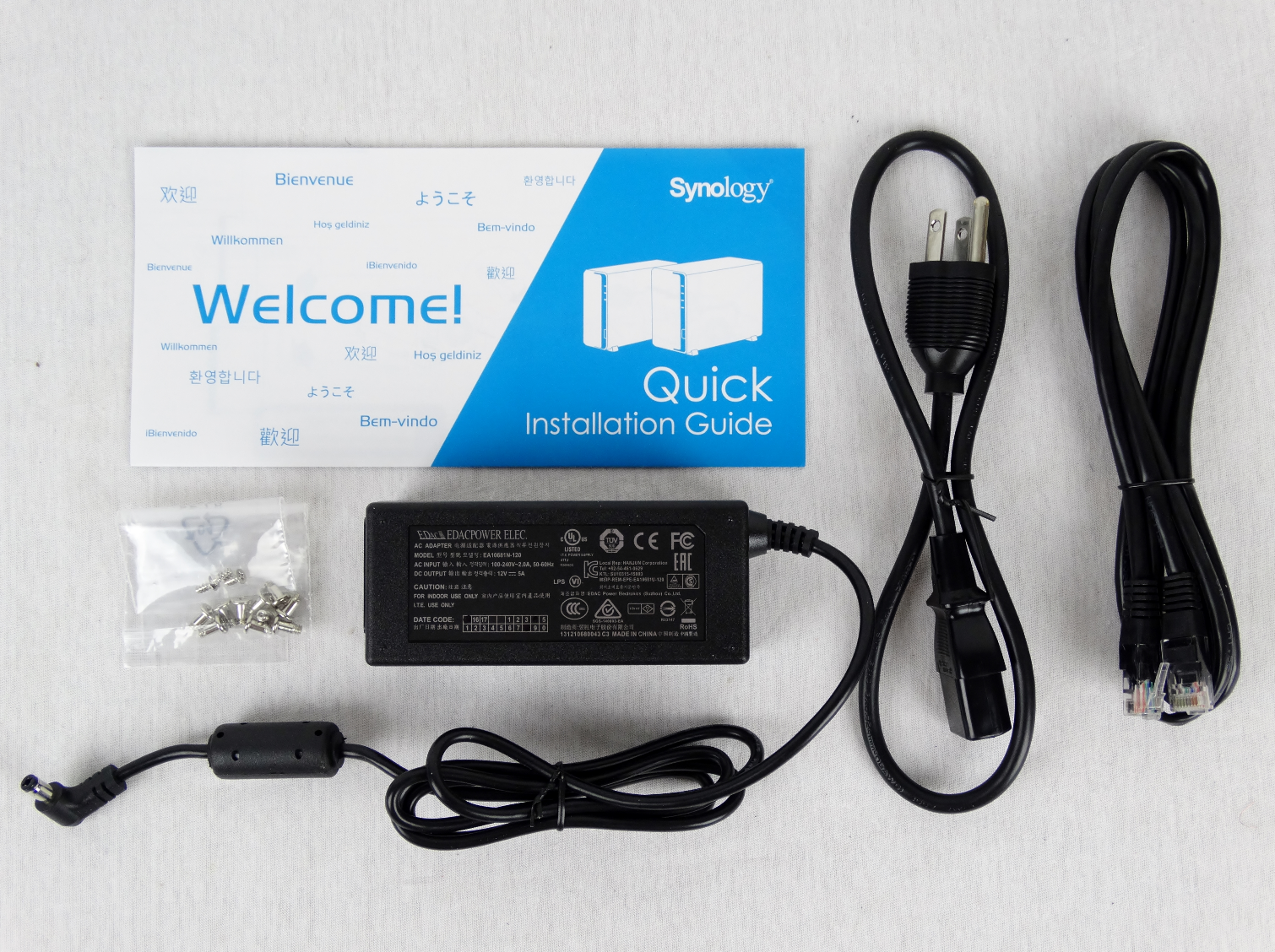
Most NAS systems sell online in the US and Europe, so Synology isn't too concerned with flashy graphics on the package. If you do find a Synology NAS in a brick and mortar store, the simple label will explain the hardware inside and list a few basic facts.
The DS216j ships with a paper quick installation guide, screws for mounting the drives, gigabit Ethernet cable and the power hardware.
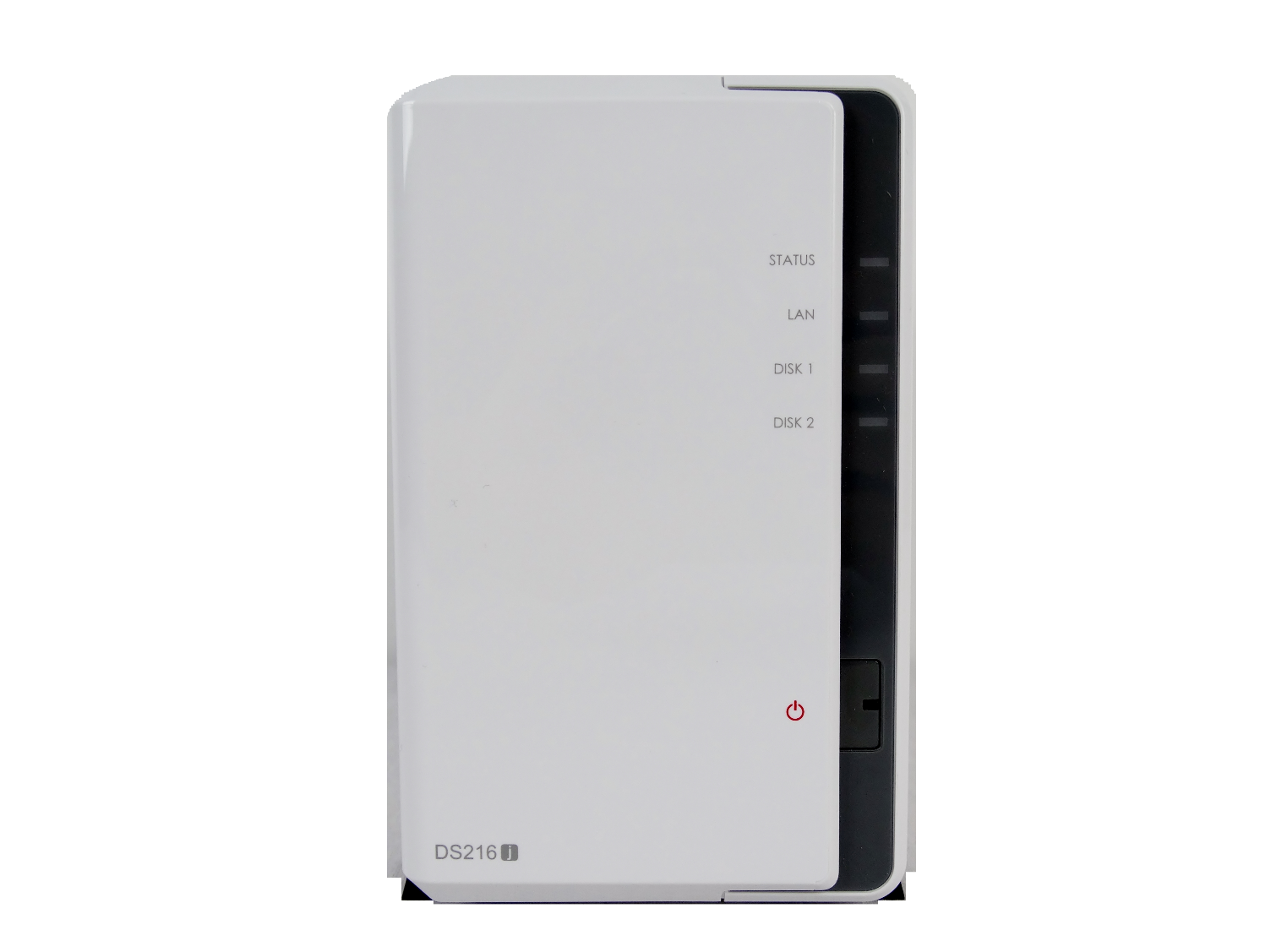
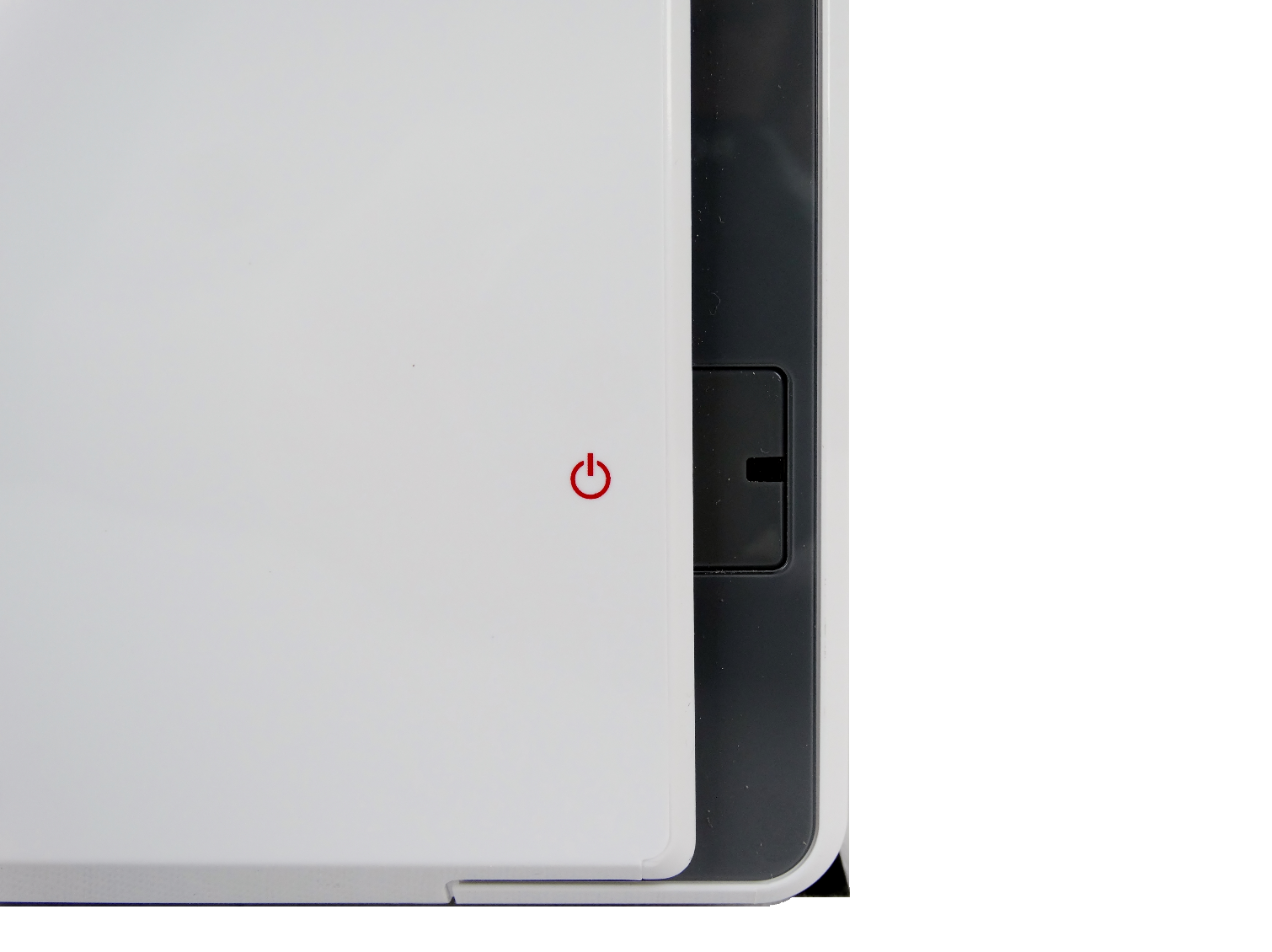
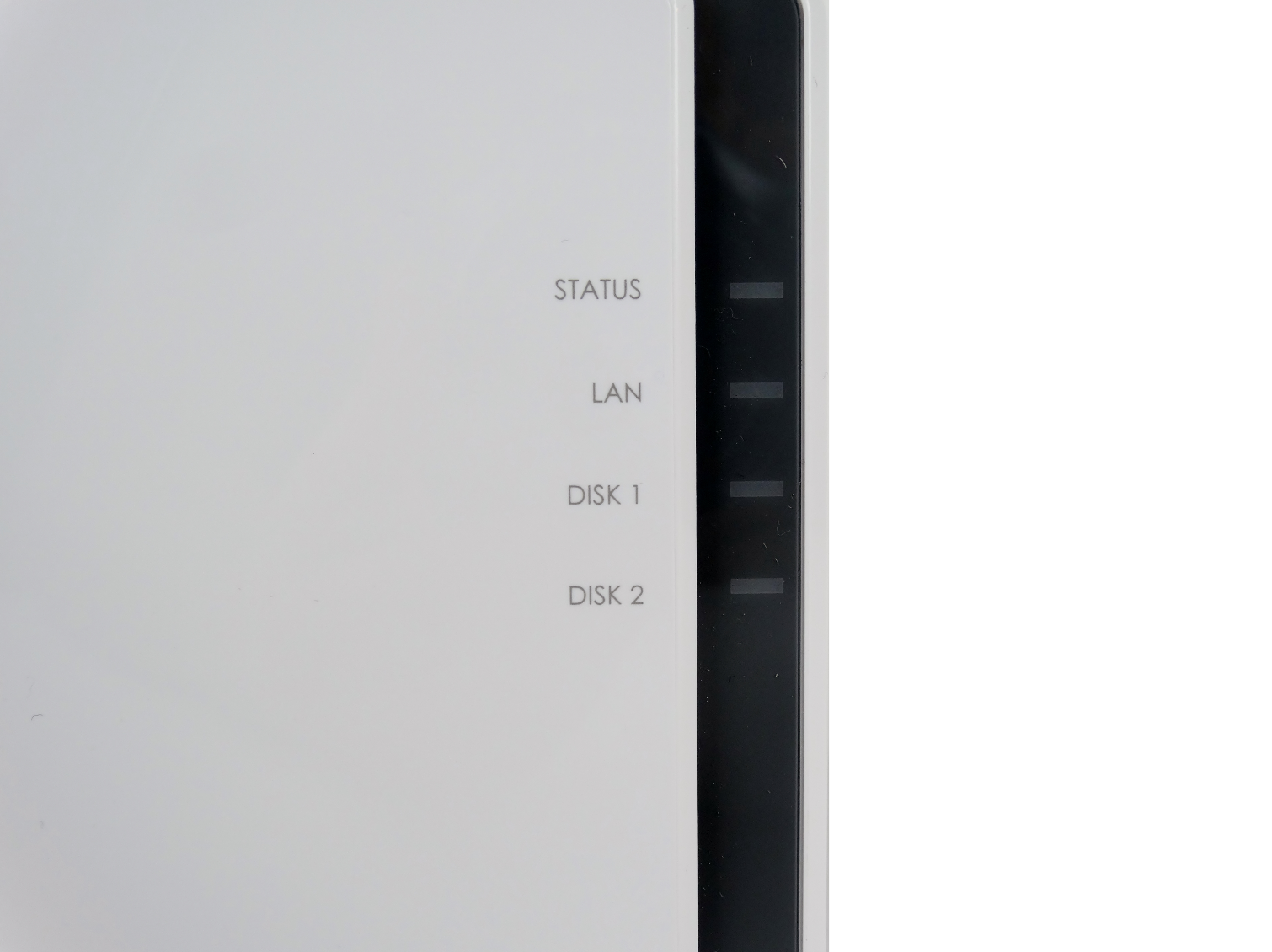
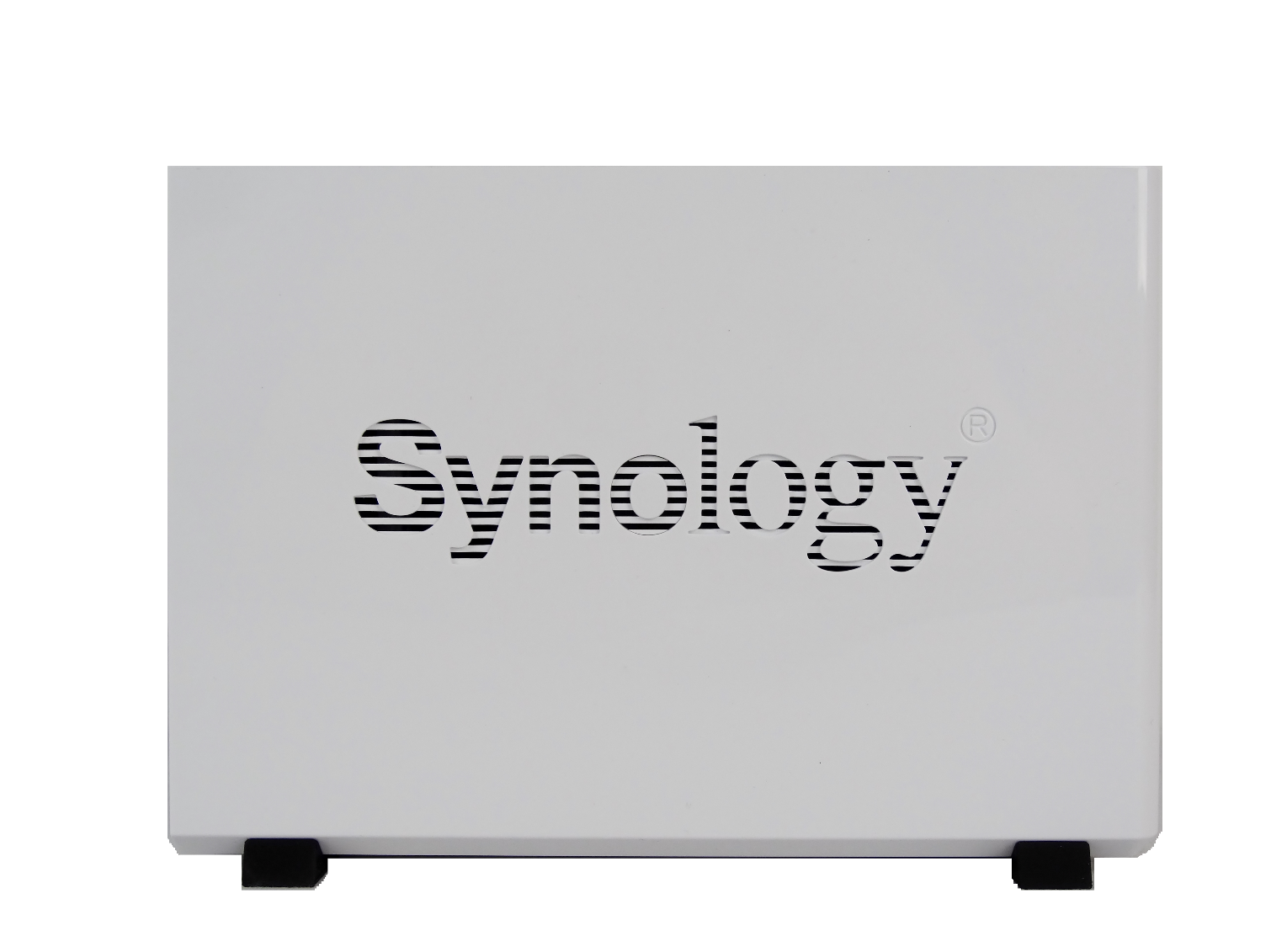
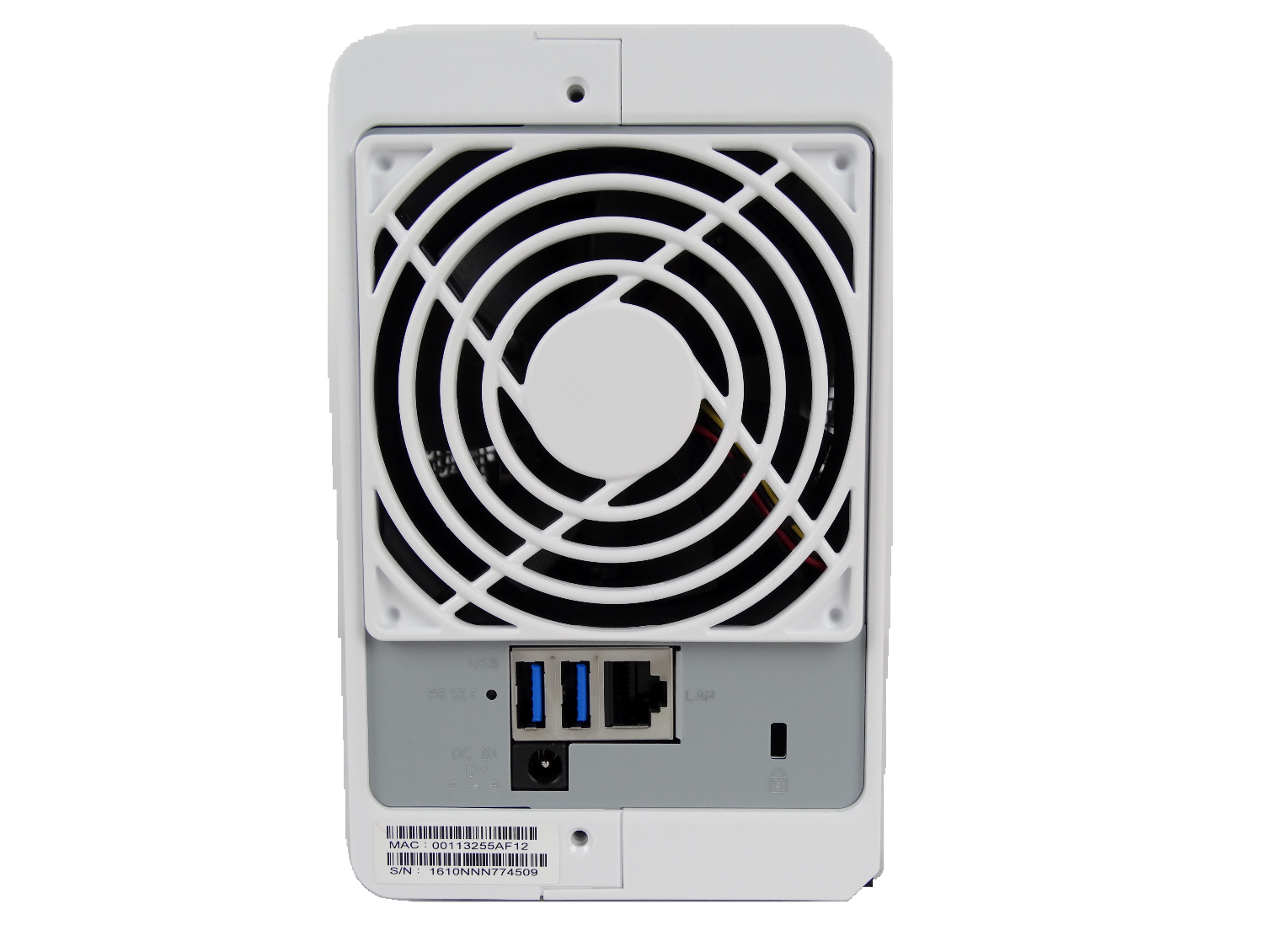
The Synology DS216j is our third and final system to use the new clamshell design. The system is nearly all plastic except for the inner cage and I/O ports.
The system is small so that the user can place it anywhere. Without an HDMI direct-to-monitor connection, the system doesn't have to be tied to the living room. The system supports DLNA, so users get a hefty dose of multimedia features, but the playback processing takes place on another device, such as a Smart TV or ROKU / Sonos-type of device.
This system uses an Armada 385 1GHz dual-core processor with 512MB of system memory, which is the same as the Western Digital My Cloud Mirror that we examine later in this review. The processor is powerful enough to manage local data transfers and push some light-use applications, such as over-the-web (cloud) data access, but we wouldn't try to run any heavy-lifting applications on this system.
Synology DS216+
The Synology DS216+ moves up the product stack and is much more powerful than the DS216j (covered above). This system uses a more powerful Intel SoC processor that supports encrypted folders, and it is the first hot-swap NAS in our roundup, which means that if a drive dies in the RAID 1 array, you can replace it without turning the system off, thus avoiding downtime.
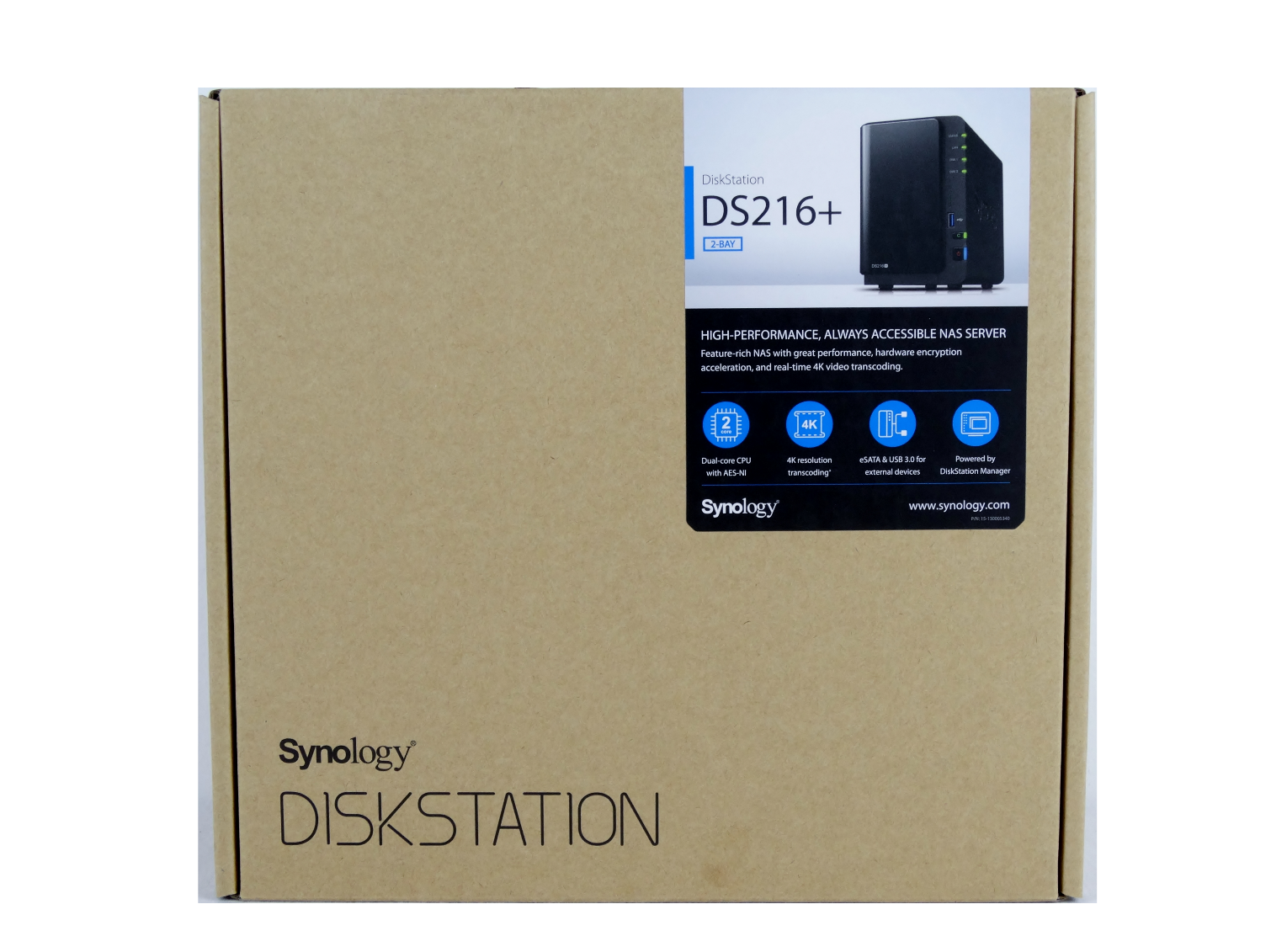
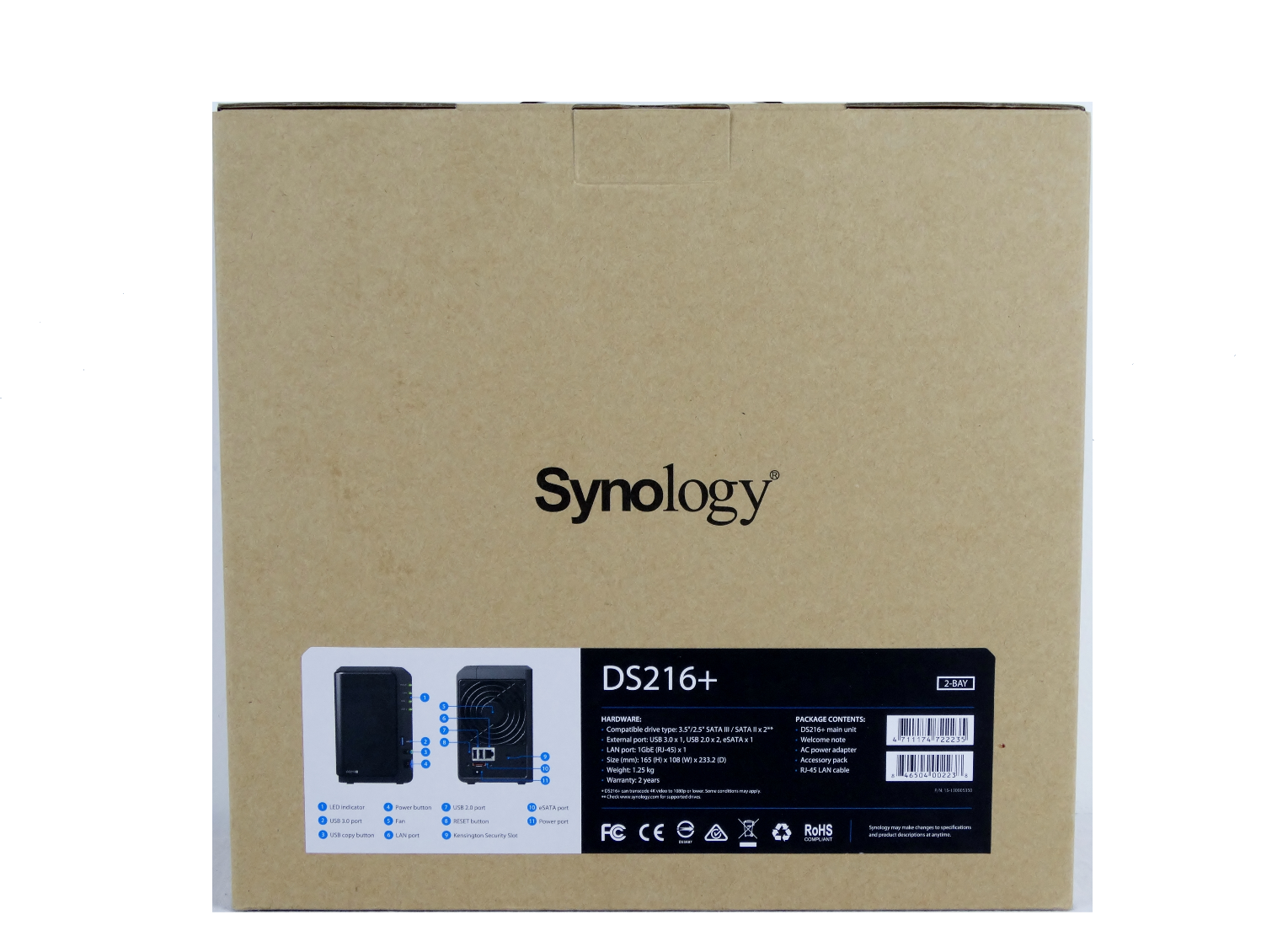
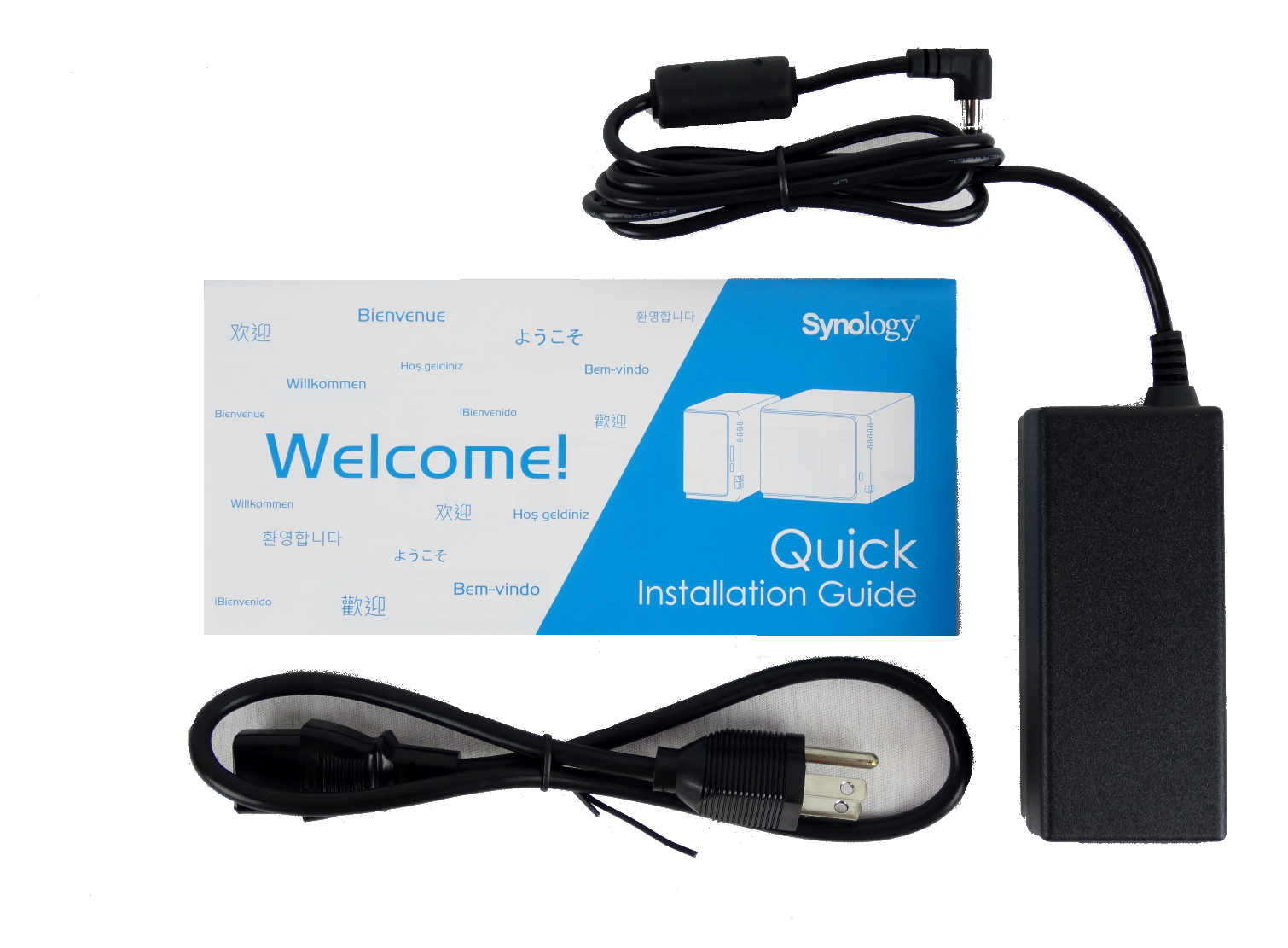
The DS216+ uses the same packaging we found on the lower-priced DS216j. Two stickers outline some of the features and its capabilities.
Users get a paper quick launch manual, external power supply and cable. An Ethernet cable is also included in the package, though it is not in the picture.
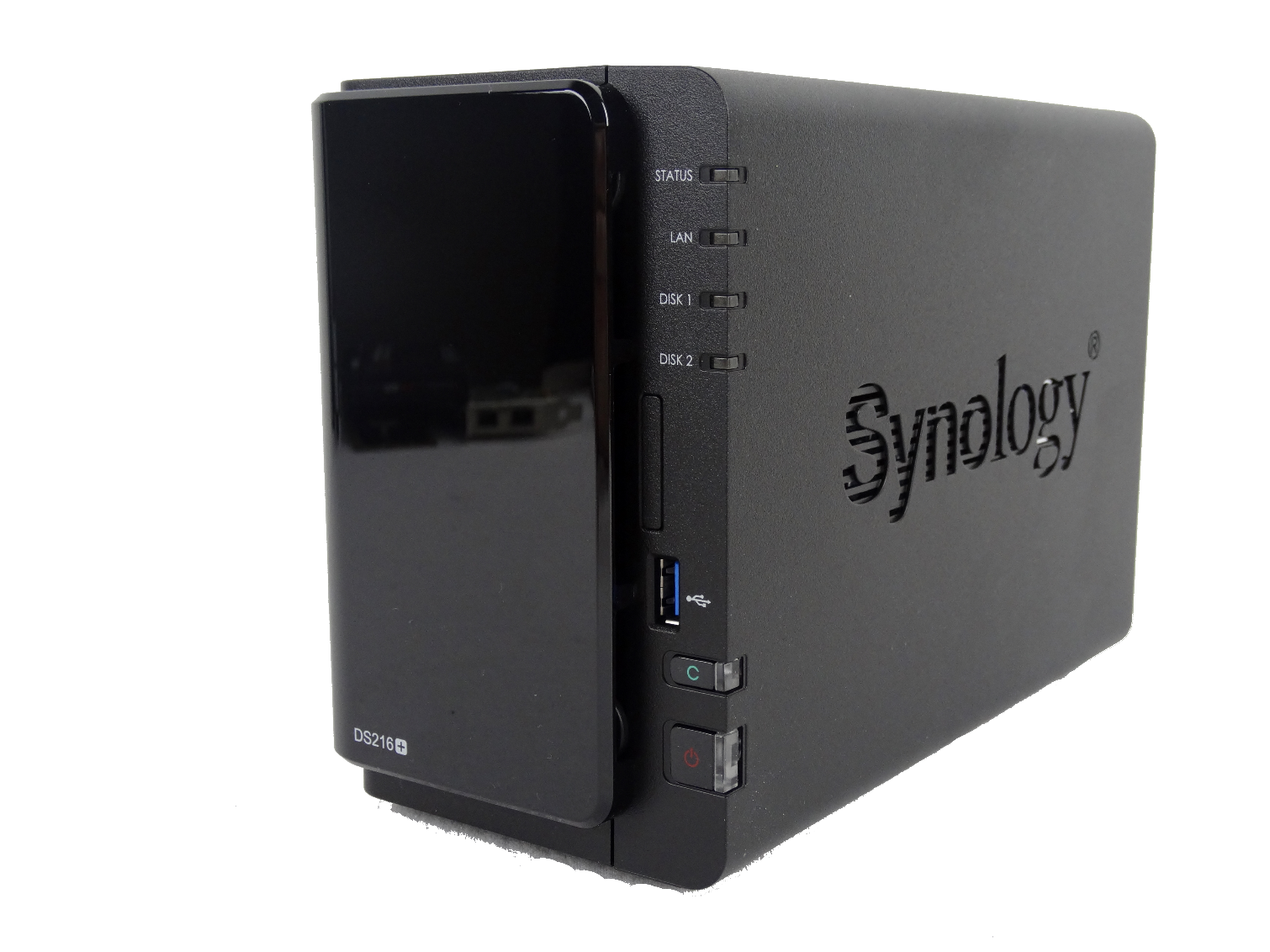
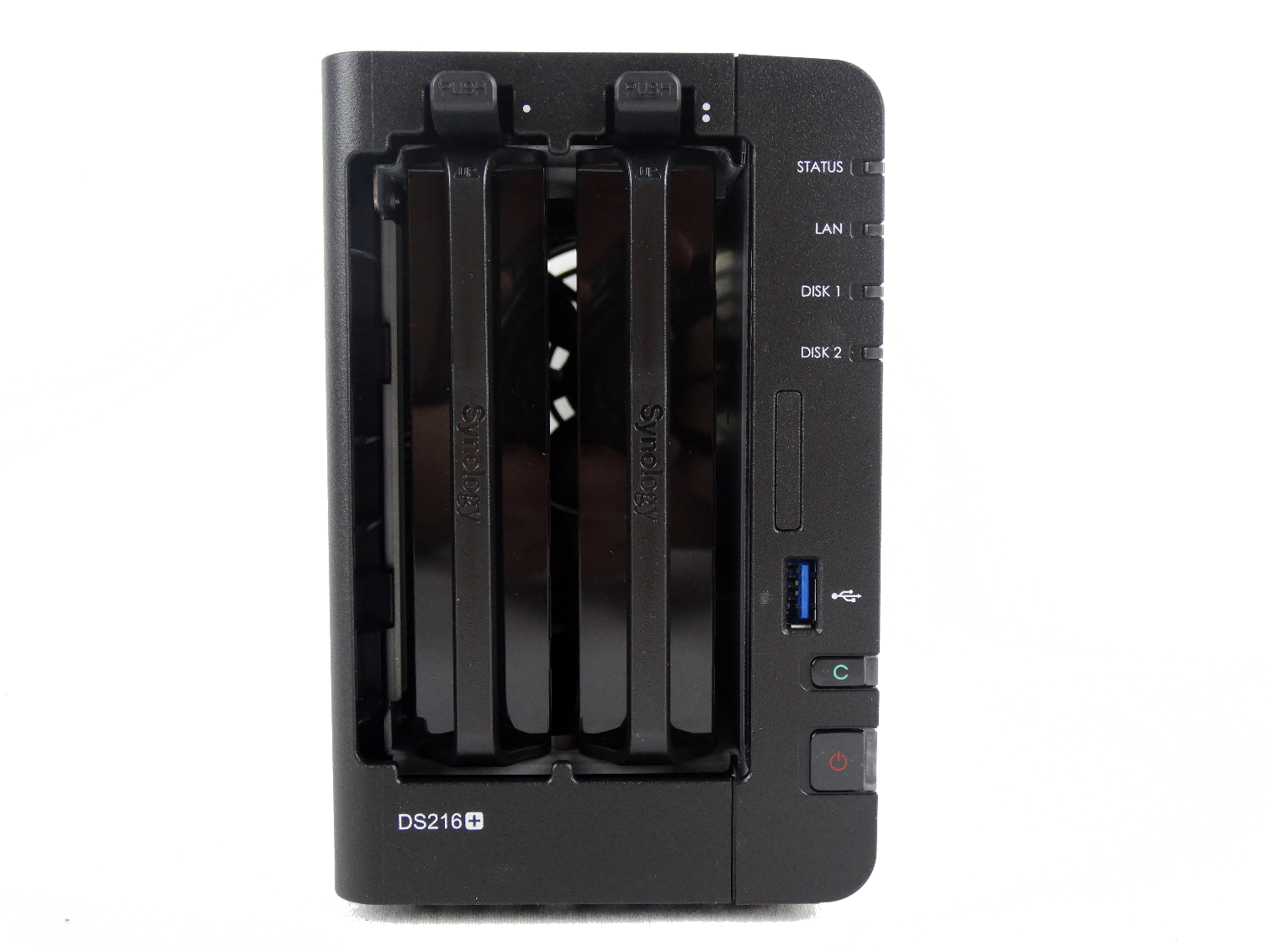
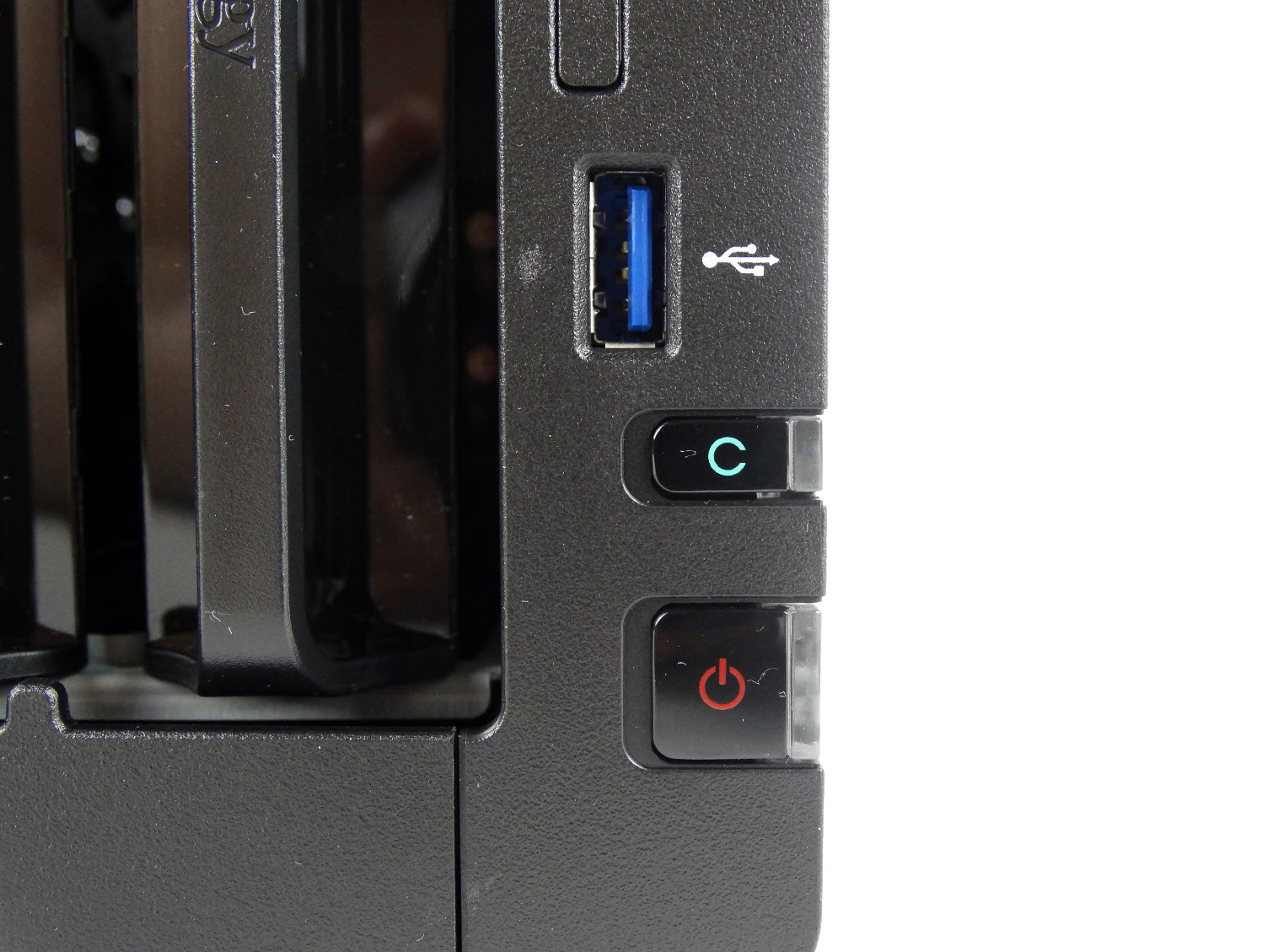
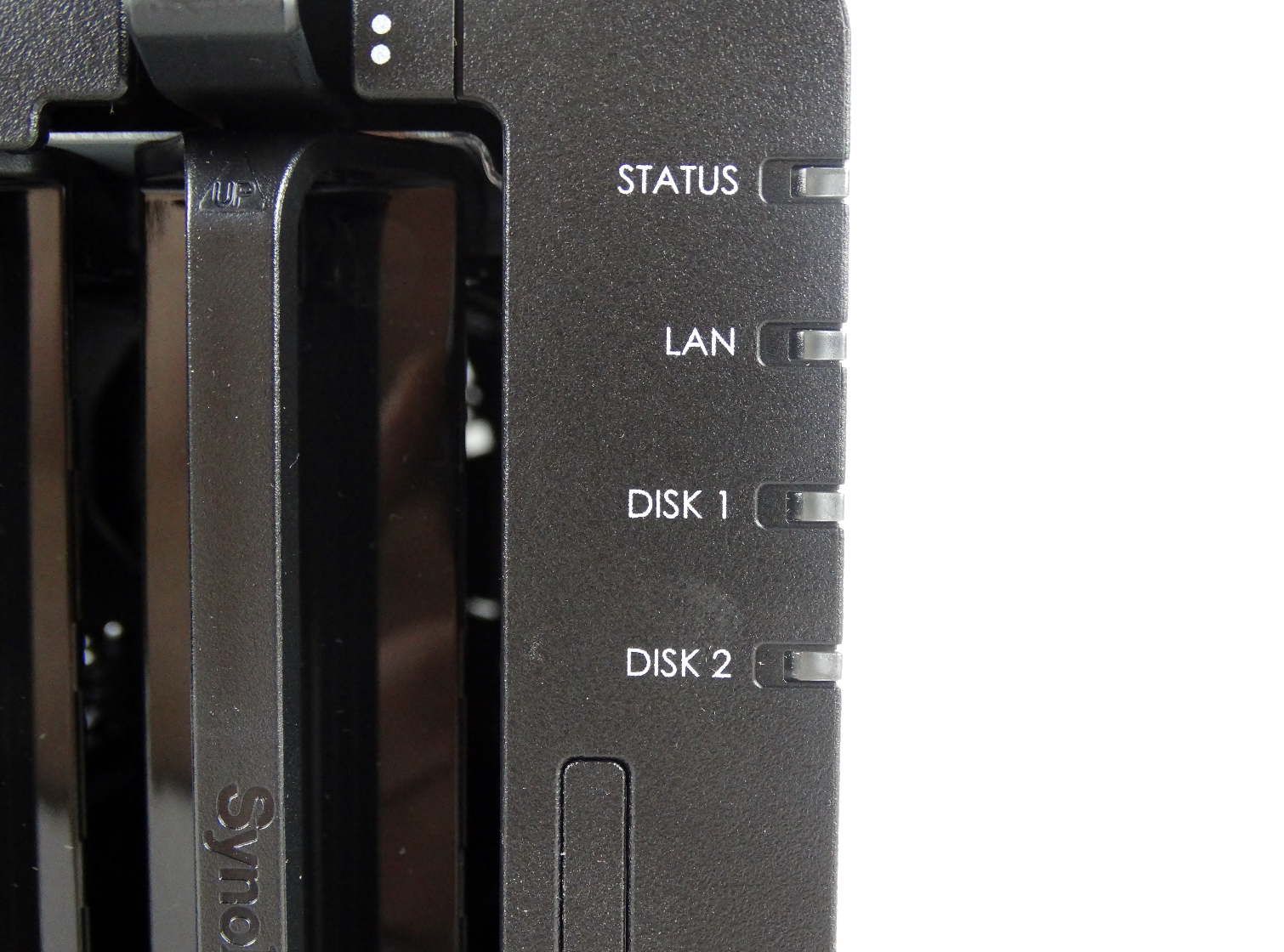
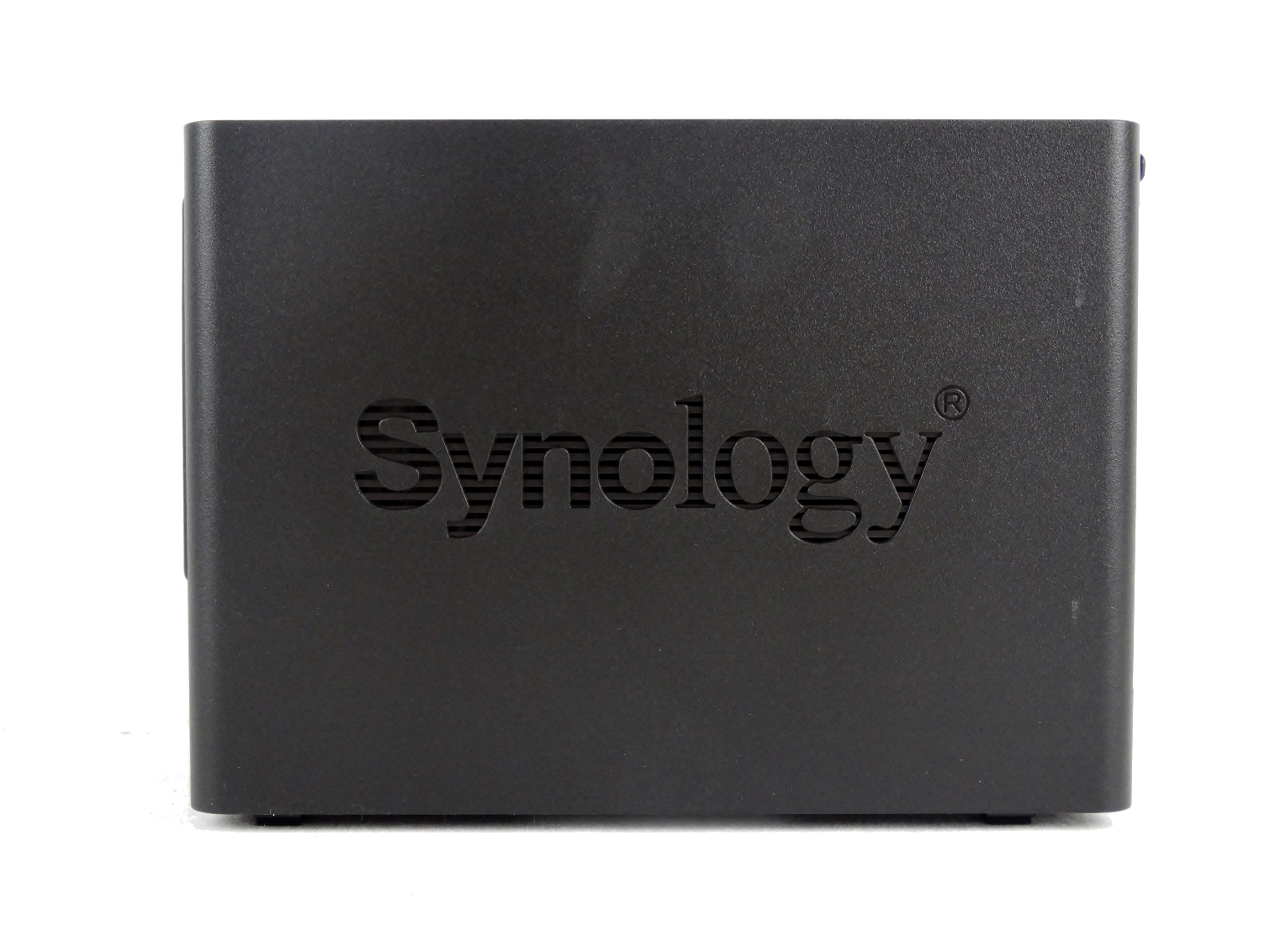
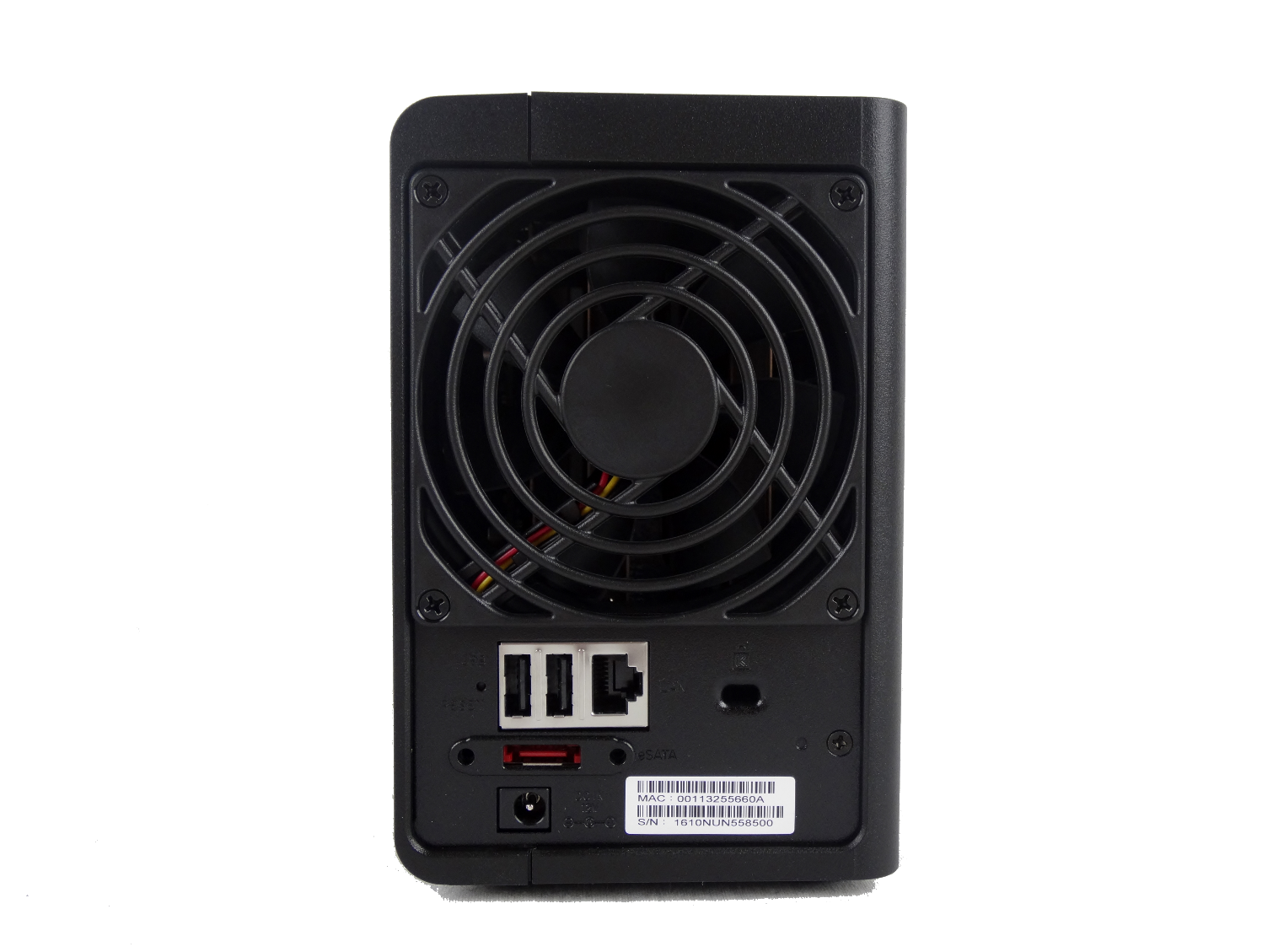
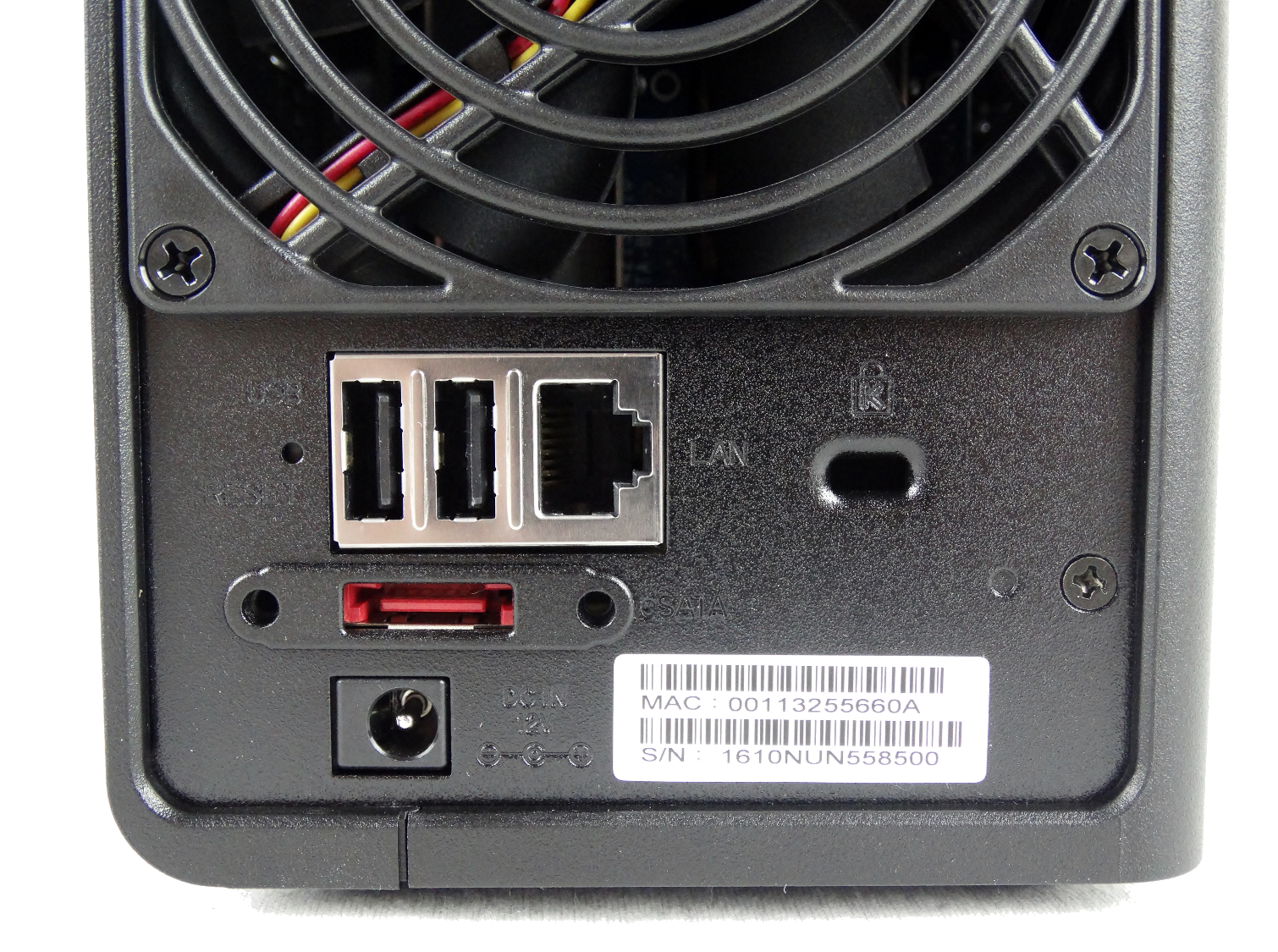
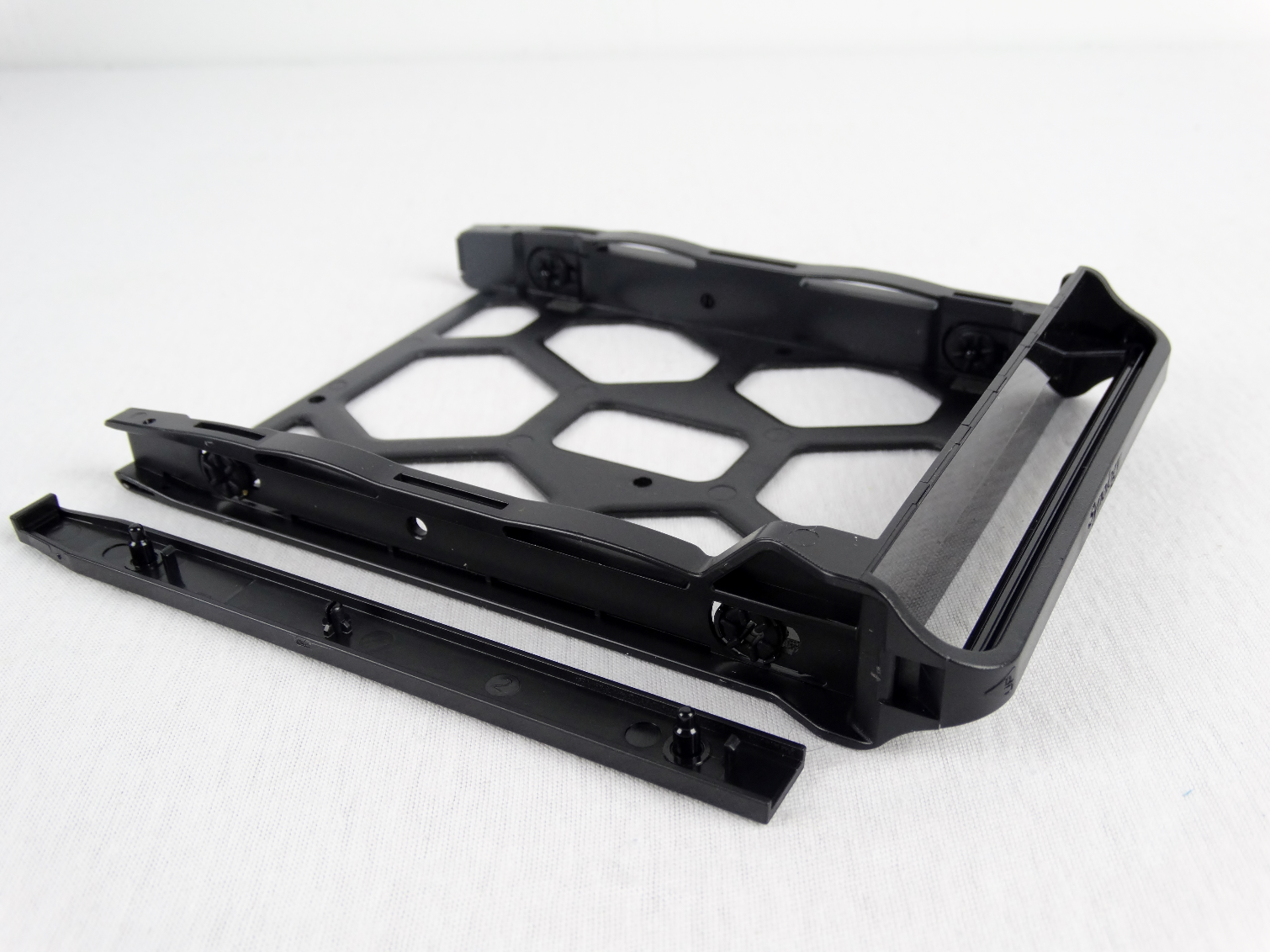
The DS216+ adds more hardware features to the mix than the lower cost products. The front panel places more emphasis on the features of the NAS with its status LEDs and USB 3.0 port. The system also has a one-touch-copy function button next to the port. Users simply plug in a portable hard drive and press the button to copy the contents of the USB drive to the NAS.
The DS216+ is the only system in our roundup that includes an eSATA port for storage expansion. Users can use the port with a single storage device, or with an add-on chassis that supports more than one drive via a SATA expander. Two USB 2.0 ports on the back give users more options for expansion or accessories, and a gigabit Ethernet port rounds out the IO options.
The system uses an Intel dual-core SoC and 1GB of system memory. This combination delivers high network throughput performance, but we discovered some odd behavior during our testing. The DS216+ supports Encrypted folders and iSCSI over a network, and similar to the other systems in the roundup, users can access data through the internet with a cloud application.
Current page: Synology DS216j & DS216+
Prev Page Asustor AS3102T & QNAP TAS-268 Next Page Thecus N2810 & Western Digital My Cloud MirrorGet Tom's Hardware's best news and in-depth reviews, straight to your inbox.

Chris Ramseyer was a senior contributing editor for Tom's Hardware. He tested and reviewed consumer storage.
-
BoredSysAdmin I won't buy Synology ever and no matter why and this is the reason:Reply
http://www.boredsysadmin.com/2015/10/a-bit-of-insight-into-synology-or-why.html -
littleleo Very interesting point. As for resellers I can tell you Synology is hard to recommend because they offer very little margin to the reseller. To make anything on a Synology product you have to be a partner to get the backend rebates. Otherwise it is very hard to make any profit selling Synology.Reply -
Neat-O man I would have loved to see how data rot, rebuild speed (full downtime, if any), where handled on the NAS's. As for the most part speed isn't much of a concern for me personally, as long as its "fast enough" which all of these are. I'm much more concerned about data rot and ease of maintenance.Reply -
Cerunnos Is the 216+ running btrfs?Reply
@boredsysadmin
None of these cheap NAS boxes will have 24/7 support. Established enterprise NAS units also require costly support plans to have that kind of on-call support. Synology's RS units run at only a fraction of the cost of others. Therefore, yes, you get what you pay for. -
JonDol Hi there. A decade ago there was a difference in reliability of the mechanical drives when placed vertically versus those placed horizontally. For this reason I've bought a NAS with horizontal drive bays and had to jump directly to 4 drives. Is the reliability of drives placed vertically still a concern today?Reply
Thanks -
heffeque Why review the TAS-268 when you've got the TS-251 for the same price and much better hardware and software?Reply
https://www.qnap.com/en-us/product/contrast.php?cp%5B%5D=195&cp%5B%5D=142&cp%5B%5D=208 -
Maxx_Power I'm pretty sure the ASUSTOR unit uses Intel Atom-based CPUs, not Broadwell-based. I think it is a Celeron N3050.Reply -
JBForum @CERUNNOS Yes, and I don't think any of the others offer a bit rot preventing system.... which was not mentioned in the article.Reply -
CRamseyer I use Seagate NAS 4TB HDDs in NAS reviews with 7 or less drive bays. The 4 to 7 bay systems run in RAID 5. The 8+ bay systems get NAS Pro 6TB drives and RAID 6.Reply
The Asustor system uses a Braswell-based processor.